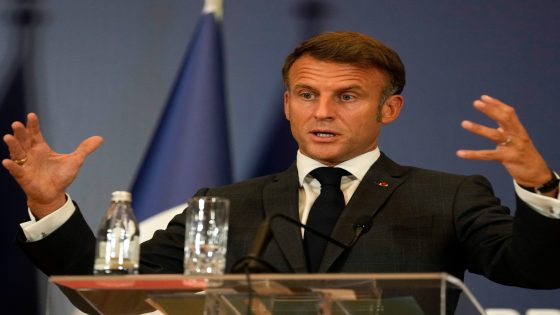French president’s office says a new PM will be named Friday morning following Michel Barnier’s resignation last week.
French President Emmanuel Macron will name a new prime minister on Friday morning, his office said.
“The statement naming the prime minister will be published tomorrow morning,” the Elysee presidential palace said on Thursday after Macron returned early from a trip to Poland.
The new prime minister will replace Michel Barnier, who resigned last week after far-right and left-wing lawmakers voted to topple his government, plunging France into its second major political crisis in six months.
Barnier stepped down after just three months in office – the shortest tenure of any prime minister in modern French history.
All the candidates widely floated so far have encountered objections from at least one side of the political spectrum.
Macron’s rumoured top pick, veteran centrist Francois Bayrou, raises hackles on the left – who are wary of continuing the president’s policies – and on the right, where he is disliked by influential former President Nicolas Sarkozy.
Beyond Bayrou, prime ministerial contenders include former Socialist Prime Minister Bernard Cazeneuve, current Defence Minister Sebastien Lecornu, a Macron loyalist, and former Foreign Minister Jean-Yves Le Drian.
The name Roland Lescure is also being discussed in the media – Lescure is a former industry minister, but the nomination of the former Socialist would risk inflaming the right.
The fall of the government has put pressure on Macron after he called snap elections earlier this year, which backfired. Opposition parties have even demanded Macron resign amid the political and economic crisis, with a 2025 budget still not passed by parliament.
However, the president in a televised address said he will stay on “until the end” of his five-year term, until May 2027.
Public anger over crisis
Polls indicate the French public is fed up with the crisis. Just more than two-thirds of respondents to an Elabe poll published on Wednesday said they want politicians to reach a deal, not overthrow a new government.
But confidence is limited, with approximately the same number saying they did not believe the political class could reach an agreement.
In a separate IFOP poll, far-right National Rally (RN) figurehead Marine Le Pen was credited with 35 percent support in the first round of a future presidential election – well ahead of any likely opponent.
She has said she is “not unhappy” that her far-right party was left out of the horse-trading around the government, appearing, for now, to benefit from the chaos rather than suffer blame for bringing last week’s no-confidence vote over the line.





